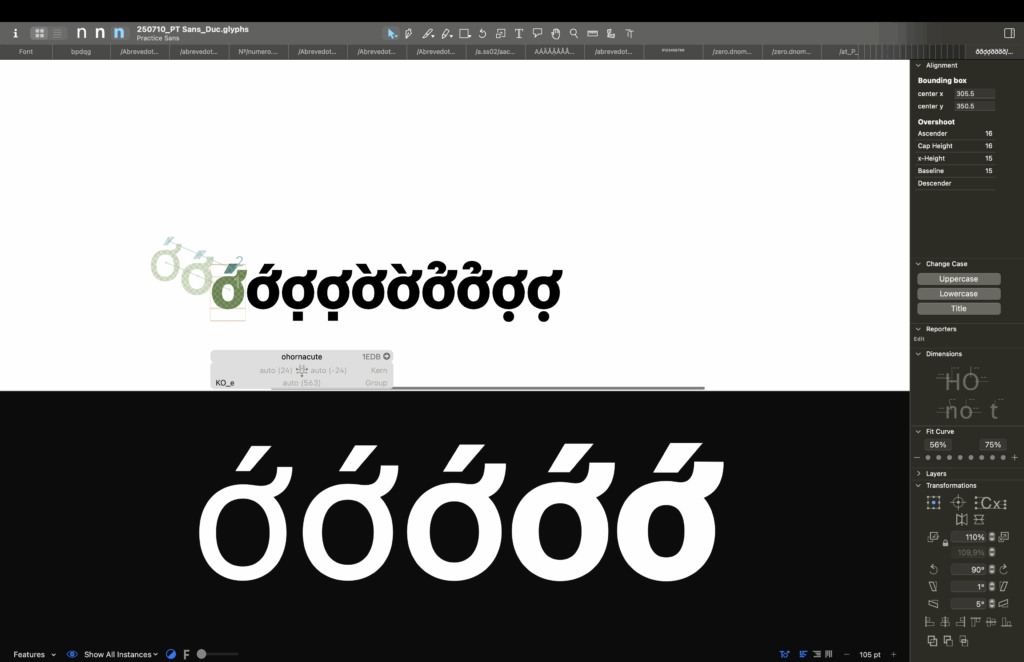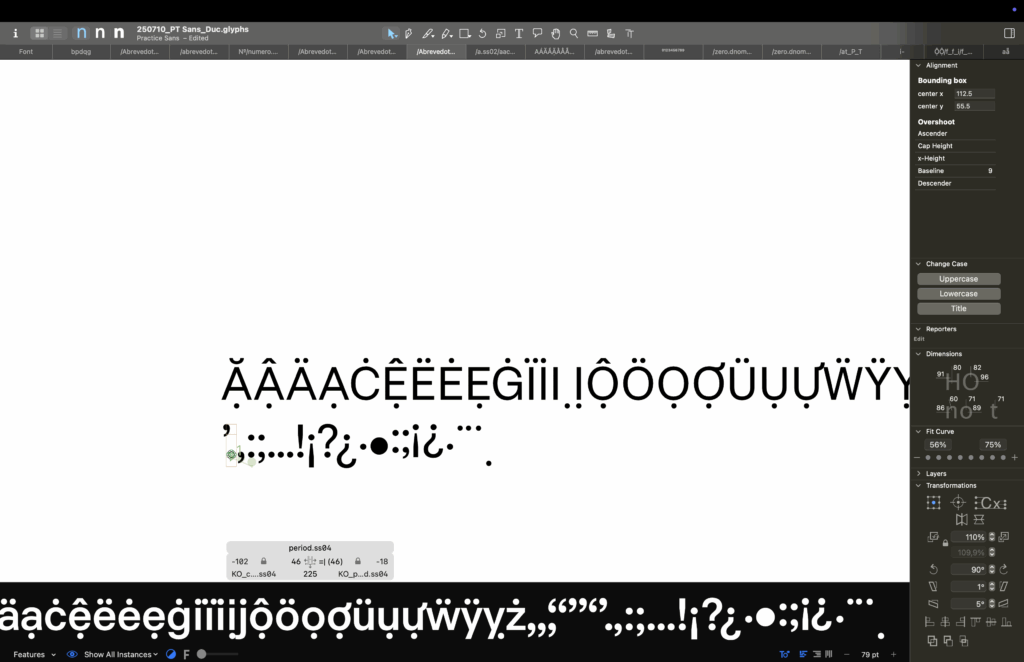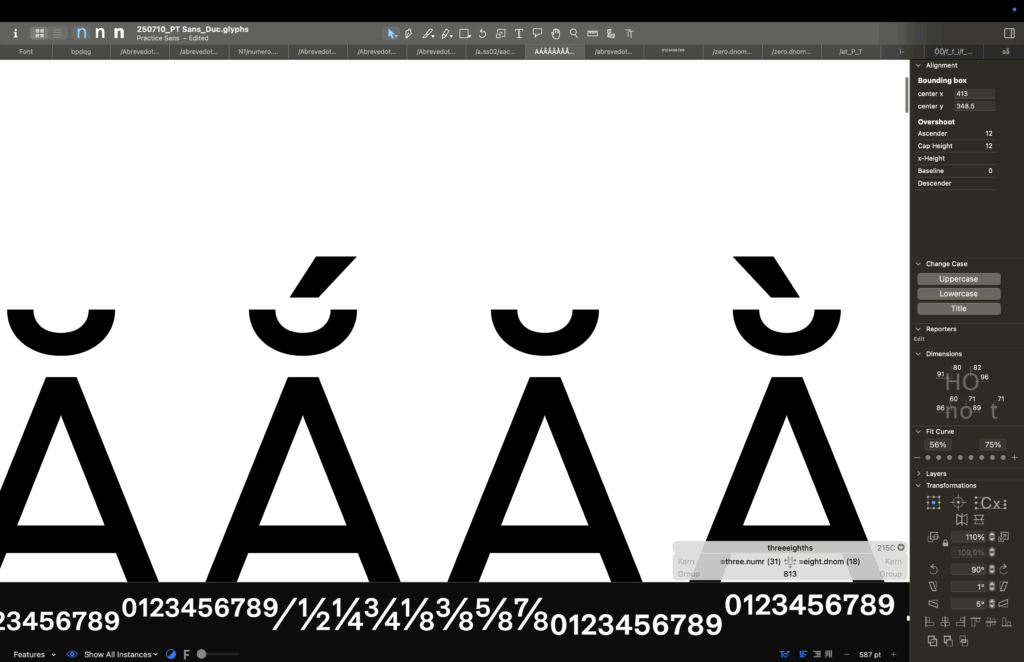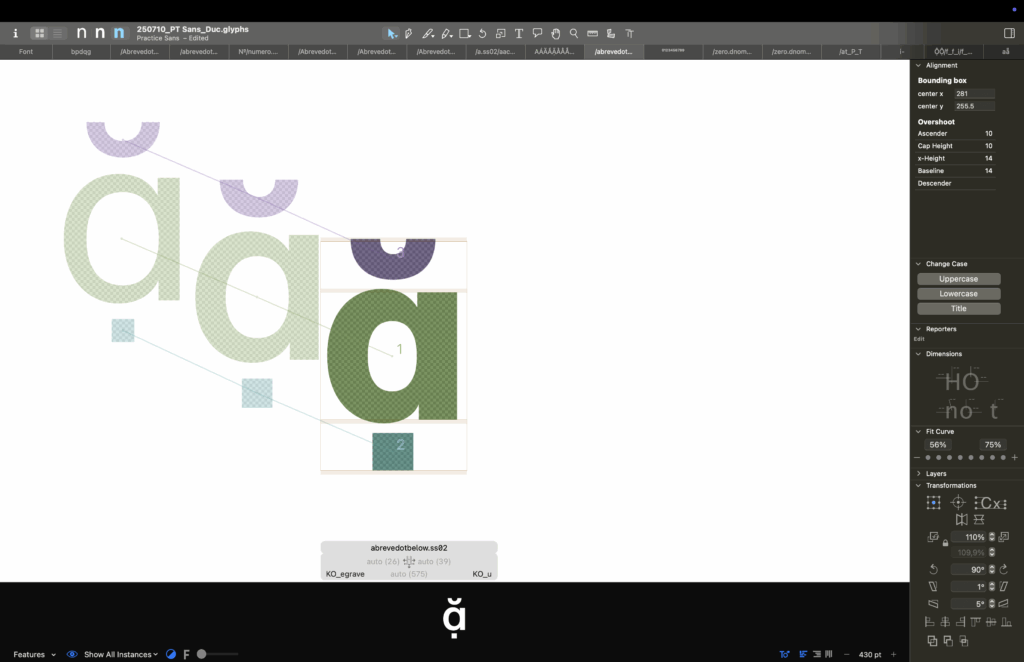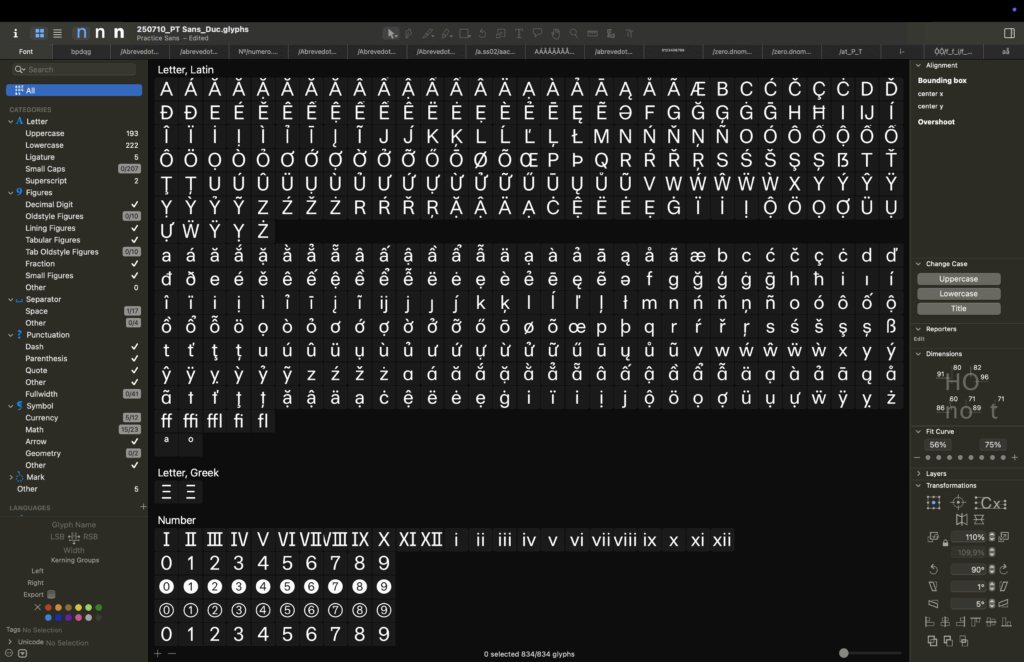Practice Sans is a custom typeface designed by Practice Theory in collaboration with Mark De Winne. Built to meet our studio’s needs across presentations, decks, books, and wayfinding, it teeters between clarity and character, neutrality and presence. It includes native support for Latin and Vietnamese diacritics, offering more inclusive visual expression while acknowledging the linguistic diversity of the countries that we work in.
As a studio grounded in typography, we’ve always obsessed over the small things: spacing, alignment, consistency, clarity. After years of squinting at the details and stretching the limits of existing fonts, we started working on our own. What began as an internal tool for better control and consistency slowly became something more.
Sans Everything marks both the public release of Practice Sans and the tenth anniversary of Practice Theory. The showcase invites visitors to consider the role of type as both infrastructure and expression. Typography is often invisible, simply supporting, framing, and shaping content while receding from view. This makes that infrastructure visible, reflecting on the foundational work behind much of what we see, read, and make.
Through videos, type specimens, and tongue-in-cheek merchandise, we invite you to get well acquainted with the making of a typeface and the values that underwrite it: precision, care, and a healthy dose of contradiction.
